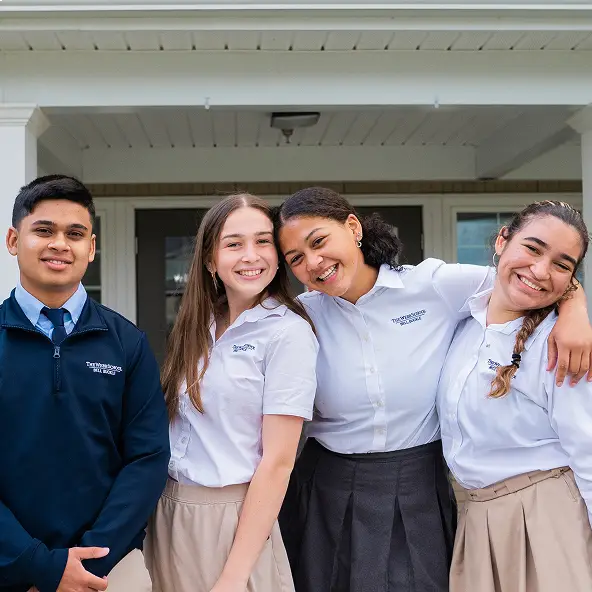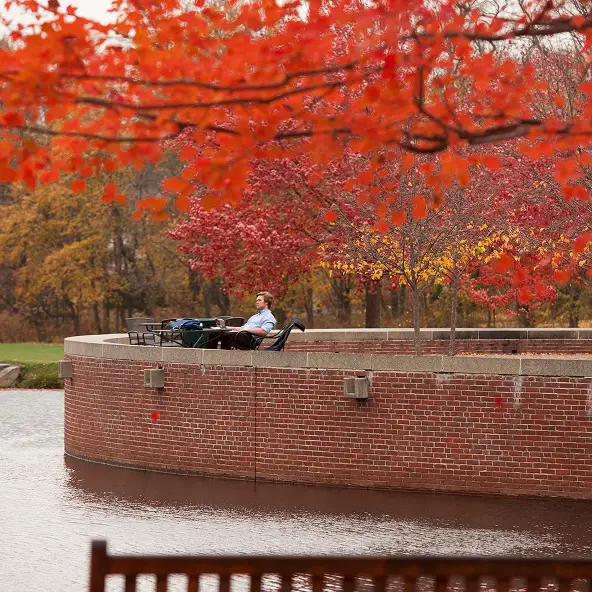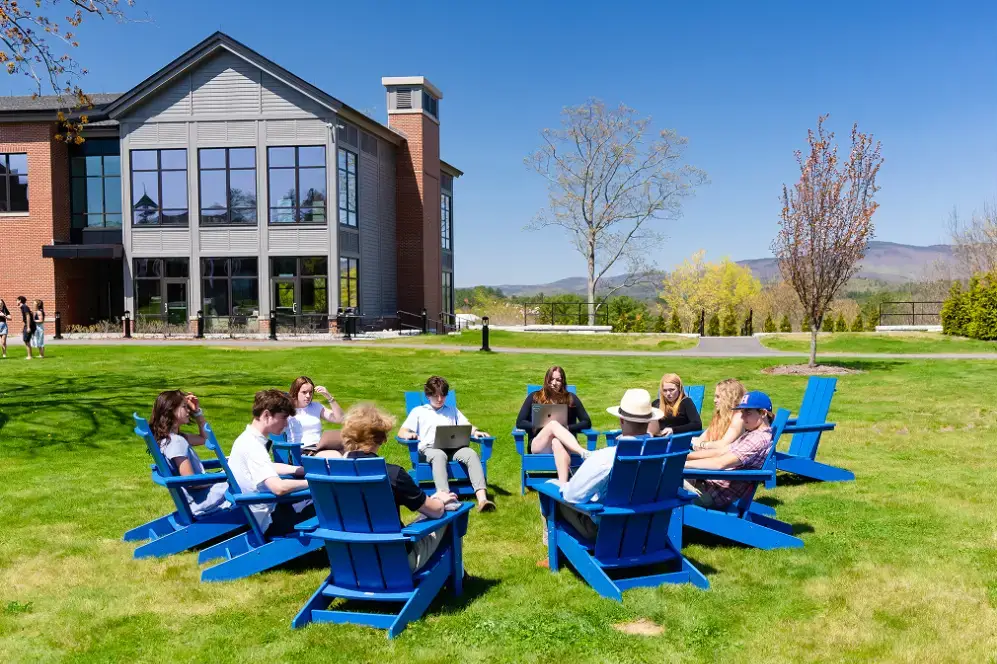
Boarding school isn’t just ivy-covered buildings and late night chats with your roommate!
Boarding school is also about building community, exploration, and setting yourself up for a brighter future than you ever could have imagined.
Check out these common perceptions about boarding schools, and learn which are true and which are false.
“Boarding schools are a very tight knit community”
True. While you might miss home at first (which is totally normal!), you’ll be surprised at the strong friendships and connections you’ll quickly build at boarding school. And you’ll still be able to regularly stay in touch with home!
“Boarding School is only for wealthy families”
False. Most schools offer financial aid, scholarships, and payment plan options. You don’t have to be rich to attend—you just have to be dedicated to being the best you that you can be. For more information on available financial aid, talk to the admissions counselor at the schools you’re applying to!
“Going to Boarding School Makes College Easier”
True. Most boarding school graduates say they feel way more prepared for college life — academically and emotionally.
“Boarding schools are all about rules and uniforms.”
False. Some schools have uniforms, and some don’t. Some schools are super structured, and others more relaxed. Whatever environment you succeed in, and whatever type of school experience you’re looking for, there’s a boarding school that fits your needs.
“Boarding School is super diverse”
True. Boarding schools attract students from all over the country…and the world! Get ready to meet and live alongside students from different cultures and different backgrounds, all living in one tight knit community..
“Boarding Schools are Academically Challenging”
True. Academics matter at boarding school, but so does making sure that students have an exciting, enriching and fun life outside of class. That’s why schools also offer no shortage of activities, including sports, clubs, music, theater, robotics, weekend field trips and so much more.
“Boarding school students have no free time.”
False. Yes, days at boarding school are full, but you’ll still have time to hang out with friends, nap, play video games, call home, and just be yourself. Boarding schools offer structure, but that includes time to just relax too.
“You Don’t Have to Be a Perfect Student to Excel at Boarding School”
True. Boarding schools are looking for students with potential, not perfection. These schools offer incredible programs far beyond what’s typically available at your local day school. So get ready to explore your interests and discover what your passions are!
“Everyone at boarding school is serious and intense.”
False. Boarding school is a great place to find your people. While many students are academically driven (which is a good thing!), you’ll find students that are also into art, sports, activism, robotics and so much more.
“There Are Many Caring Adults at Boarding School”
True. At boarding school, you’ll be surrounded by incredible adults whose job it is to support you and help you grow.






The PEOPLE WHO'VE GOT YOUR BACK
One benefit of living on campus at a boarding school is that you’re always surrounded by a team of trained, caring adults who are there to guide you, cheer you on and help you thrive—both in school and in life.
Your team is also in regular communication with parents, to ensure that they’re staying in the loop and are still very much an active part of your life.
At most schools, your team includes:
Dorm Parent
Dorm Parent
Dorm parents typically live in the boarding residence alongside students. They’re focused on your physical and emotional health, and they’ll be checking in to make sure that you’re happy, you’re making friends and that you’re getting enough sleep. Your dorm parents are also the people that will plan weekend events with students to help you make strong, lifelong friendships. (And don’t be surprised if they also surprise you with the occasional batch of homemade treats!)
Teachers
Teachers
Most boarding school teachers live alongside you on campus—which means they don’t just know when your homework is due, but they also know your name, your strengths and how to help you grow, both in and out of the classroom.
Coach / Athletic Trainer
Coach / Athletic Trainer
If you play a sport (or want to try one!), your coach will support your training, your wellness, and your team spirit.
Advisor
Student Advisor
Think of your Student Advisor as your one-person academic support system. They’re there to help you track your goals, solve any issues you run into, plan your course load and stay balanced…both academically and mentally.
Head of School
Head of School
This is the leader of the school, similar to a Principal. You’ll see them around campus a lot—cheering at games, saying hello to you by name, and generally making the school feel like home.
College Counselor
College Counselor
This is your go-to person for everything you need to get ready for the next step. Whether you’ve already mapped out your route to your dream college or feel totally lost, they’re there to help you take the next step. Your college counselor will help you with the college research process, with building your applications, with preparing for testing, and so much more.
A GUIDE TO THE DIFFERENT TYPES OF BOARDING SCHOOLS
Most boarding schools offer strong academics, leadership opportunities, and a wide range of clubs and activities. But some boarding schools also offer more specialized emphases or programs to fit the different needs of students.
Here are some of them that you may wish to consider:
Single-Gender Schools
At single-gender schools, students learn in an environment centered on all boys or all girls. Many find that this setting helps them feel more comfortable participating, taking academic risks, and exploring leadership opportunities. Students still have access to the same strong academics, athletics, and extracurriculars as all-gender schools — just in a more tailored environment.
Arts-Focused Schools
Have a passion for dance, theatre, music, or visual art? These schools let you train seriously and study hard, with teachers who have spent their entire careers professional working in their field.
Athletic-Focused Schools
These schools are a good fit for student athletes ready to take things to the next level — with top coaches, facilities, and competition. In addition, students at Athletic-Focused Schools still take part in rigorous academics and college preparation.
Military Schools
At military schools, students benefit from a structured, leadership-driven environment where they can learn responsibility, discipline, and resilience. They still take a robust courseload of interesting classes and can join fun extracurriculars, just with the extra layer of order.
Faith-Based Schools
These schools offer a strong connection to the church alongside academics and extracurriculars, providing a values-based community.
Therapeutic Resources
These schools help students who need more structure or emotional support, with a strong focus on wellbeing and confidence. While some schools specialize exclusively in therapeutic programs and extra support, many other boarding schools have resources available for those who need it.


